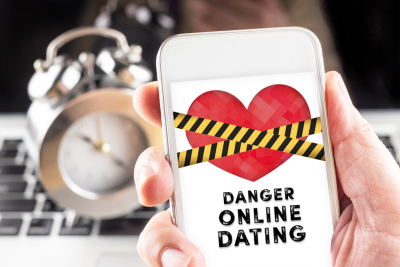
Action Fraud is warning the public to spot the signs of Romance Fraud this Valentine’s Day. Victims of romance fraud, the majority of whom are women, lost an average of £11,145 each last year, according to the police reporting centre.
Police say that victims are being targeted via online dating websites, apps or through social media. Fraudsters use fake profiles to form relationships with vulnerable and lonely people. Fraudsters trick their victims into sending money or gather enough personal information to steal their identities.
Data from Action Fraud showed that over £50 million was lost in 2018 from these scams to fraudsters pretending to be romantically attached to their victims. This is a 27% increase on the previous year and the average loss is £11,145 per victim.
What is Romance Fraud?
Romance Fraud happens when a victim is tricked into thinking they have entered into a genuine relationship with someone they have met via a dating app, online profile or through social media. In reality the victim is unknowingly communicating with a fraudster, who’s only intention is to gain enough trust to then steal their money, personal information or even identity.
New statistics revealed that people across the UK continue to fall victim to romance scams, and the consequences can be devastating. In 2018, 4,555 reports of romance fraud were made to Action Fraud, the total cost of this is over £50 million.
Action Fraud are warning that the emotional impact of romance scams can be even more difficult to come to terms with than the loss of money. In a report produced by Action Fraud, 42% of victims described falling victim to romance fraud as having a significant impact on their health or financial well-being.
The report also showed that the average age of a romance fraud victim is 50 and that 63% of dating fraud victims are female who lose twice as much on average than males.
It is thought that these numbers do not accurately represent the true scale of the problem, as most victims feel embarrassed or ashamed to have fallen victim and never report it to the authorities.
Action Fraud recommend the following tips to avoid romance scams:
1.Don’t rush into an online relationship – get to know the person, not the profile and ask plenty of questions.
2. Analyse their profile and check the person is genuine by putting their name, profile pictures or any repeatedly used phrases and the term ‘dating scam’ into your search engine.
3. Talk to your friends and family about your dating choices. Be wary of anyone who tells you not to tell others about them.
4. Evade scammers by never sending money to, or sharing your bank details with, someone you’ve met online, no matter what reason they give or how long you’ve been speaking to them.
5. Stay on the dating site messenger service until you’re confident the person is who they say they are. If you do decide to meet in person, make sure the first meeting is in a public place and let someone else know where you’re going to be.
Diana Fawcett, Chief Officer at Independent Charity Victim Support Said: “Romance fraud affects victims both emotionally and financially and for many the impact can be long-term. These scams can be extremely sophisticated and victims should not feel ashamed or embarrassed and shouldn’t blame themselves in any way. It’s important that victims know there is help available to them and we would encourage them to seek support.”

